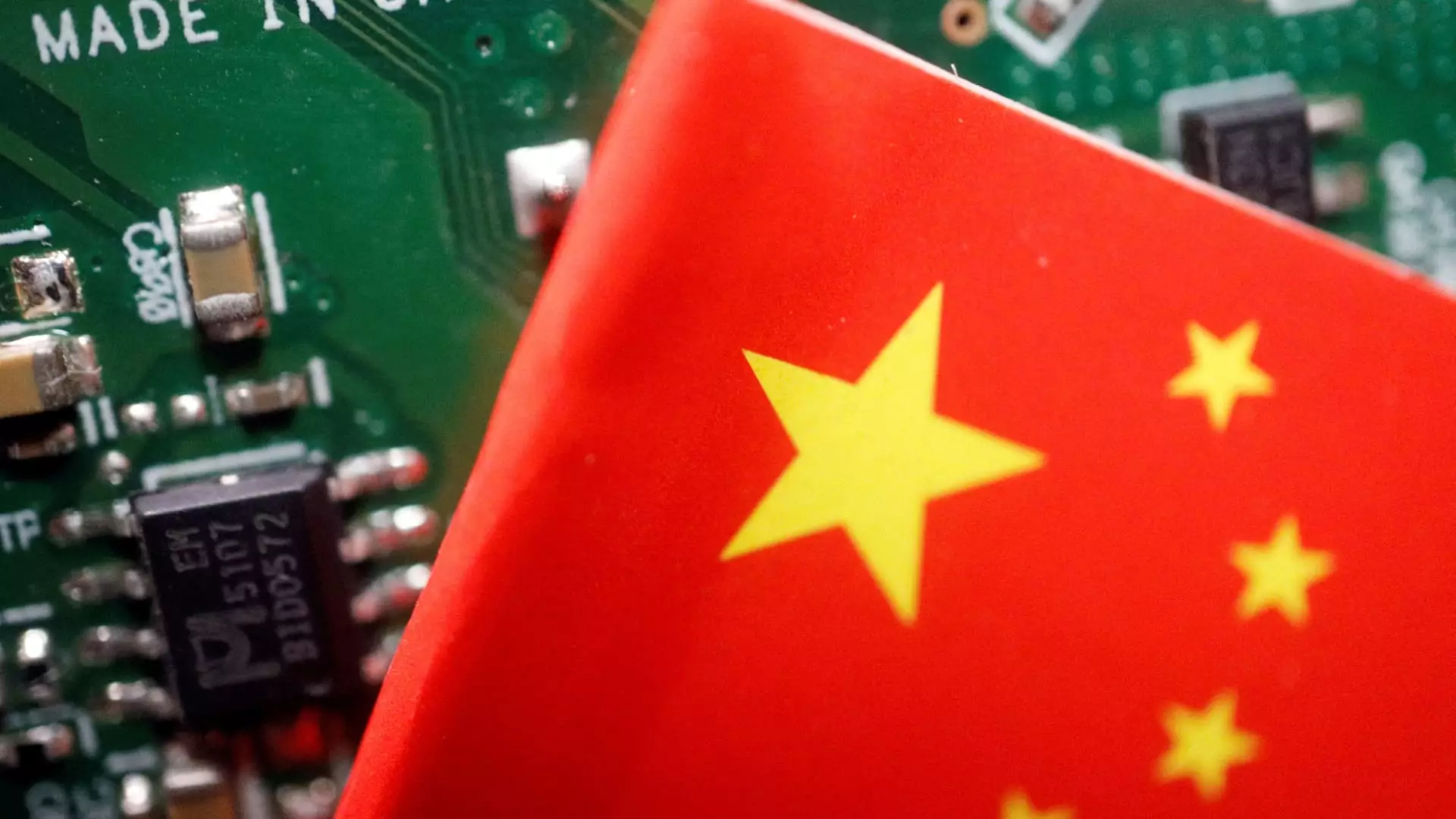In a striking display of resilience, major chip stocks across Asia, notably those outside of China, experienced a notable uptick on Tuesday, seemingly dismissing the latest round of U.S. export restrictions aimed at hampering China’s semiconductor advancements. As geopolitical tensions escalate and nations vie for dominance in technology, the ramifications of trade restrictions are palpable in the stock market, and yet, Asian firms appear to have found a silver lining amid these challenges.
Taiwan Semiconductor Manufacturing Company (TSMC), famed for being the world’s foremost contract chip manufacturer, recorded a commendable 2.4% increase in its shares. This surge is emblematic of TSMC’s strong market position despite external pressures. Concurrently, several Japanese companies, including Tokyo Electron and Lasertec, saw their shares climb by 4.7% and 6.7% respectively, reflecting a broader confidence in the sector’s resilience and adaptability.
The Biden administration’s latest export controls target the sales of high-bandwidth memory chips—critical components in advanced computing. These restrictions are particularly concerning for South Korea’s semiconductor giants, Samsung Electronics and SK Hynix. However, contrary to initial apprehensions, their stock prices experienced slight increases of 0.9% and 1.8%, respectively. This unexpected reaction could suggest that investors remain optimistic about these companies’ ability to navigate regulatory hurdles and maintain their market positions.
Derrick Irwin, a portfolio manager at Allspring Global Investments, offered insights into the implications of these export controls during a segment on CNBC’s “Street Signs Asia”. He articulated that while South Korean manufacturers may face challenges concerning sales to China, the overall impact might be mitigated by their capacity to redirect their products to markets like the U.S. This perspective instills hope that diversification strategies could buffer companies from the full brunt of the restrictions.
On the other hand, Chinese semiconductor firms are grappling with the consequences of these U.S. sanctions. Notably, companies such as the Naura Technology Group, ACM Research, and Piotech were among the newly sanctioned entities. Naura Technology and ACM Research saw their shares decline by 3% and 1%, respectively, indicating investor wariness regarding their market outlook amid increased restrictions. In stark contrast, Piotech’s stock rose by 1%, suggesting a nuanced perception of its market position, possibly influenced by other operational strengths.
Moreover, China’s largest chipmaker, Semiconductor Manufacturing International Corporation (SMIC), experienced a share price decline of 1.5% in Hong Kong. These developments underscore the precarious stance of Chinese chip manufacturers as they navigate intensified scrutiny and redirection of resources due to international sanctions.
U.S. Secretary of Commerce Gina Raimondo articulated the government’s rationale behind the new restrictions, framing them as a precautionary approach to safeguard national security interests. The cumulative impact of these legal frameworks is to restrict China’s capability to indigenize essential technology production, especially in areas deemed critical to both military and economic strength.
Further amplifying the pressure on Chinese companies, the regulations introduce controls on 24 types of semiconductor manufacturing equipment and three software tools pivotal for semiconductor development. This multi-faceted approach aims to ensure that China cannot easily surmount the barriers imposed by the U.S. regulatory framework, forcing innovation dependencies that favor American and allied nations.
The semiconductor industry stands at a complex intersection of opportunity and adversity. While Asian chip stocks exhibit resilience in the face of U.S. sanctions, especially in Taiwan and Japan, the outlook for Chinese firms appears bleak under increased scrutiny. The evolving landscape will necessitate adaptability, innovation, and strategic pivots as companies grapple with geopolitical dynamics that influence their operational capabilities and market positioning. As stakeholders assess their strategies in light of these developments, the semiconductor sector’s long-term trajectory will hinge on both governmental policies and the companies’ responses to emerging challenges.


Leave a Reply